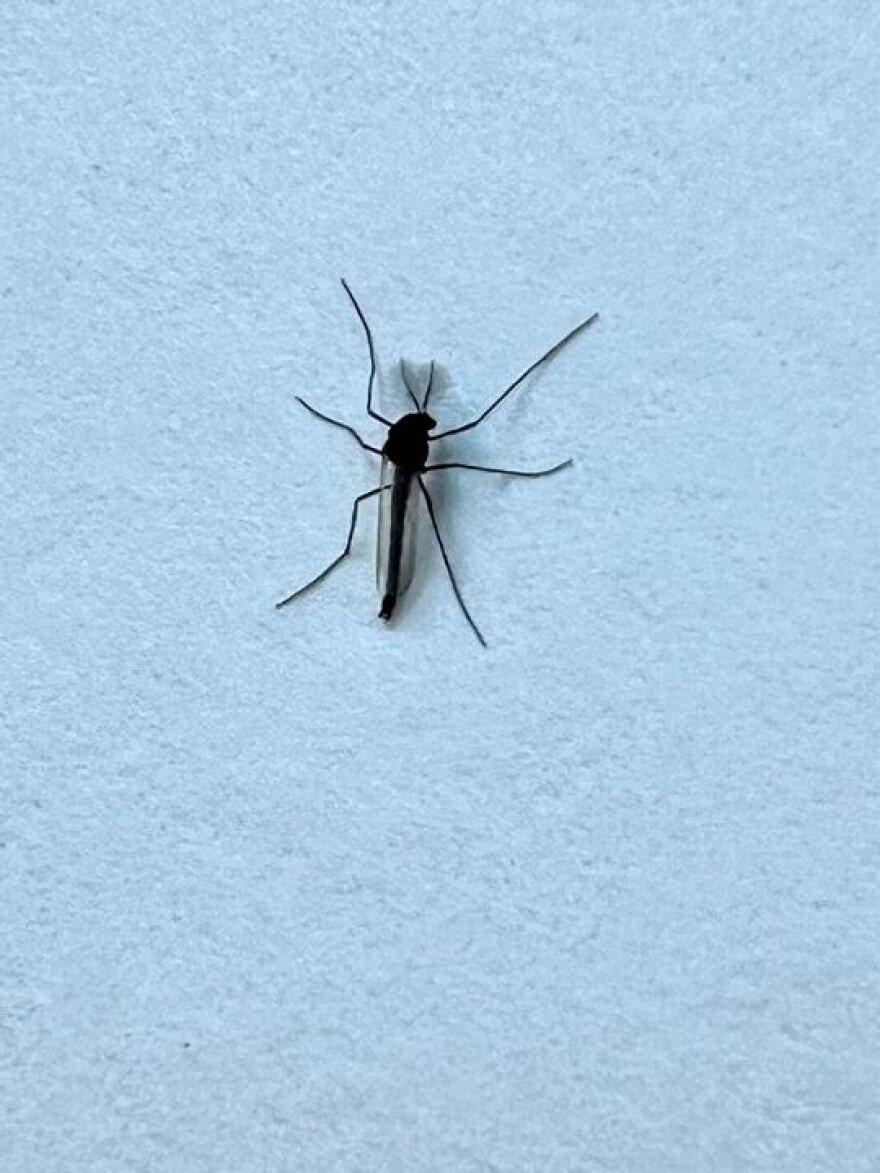BETHLEHEM, Pa. — Swarms of flying insects last week descended on the Lehigh Valley.
Clouds of non-biting midge flies, also known as chironomids, were spotted in the city’s South Side neighborhood, near the Lehigh River.
Also known as “blind mosquitoes” because they look similar, but do not bite, or “fuzzy bills” because of the male’s bushy antennae, midge flies aren’t harmful to residents.
To find out more about these insects, LehighValleyNews.com spoke with Marten Edwards, a professor and chair of Muhlenberg College’s biology department.
What do they do?
Non-biting midges larvae live in water, Edwards explained.
“Depending on the species, they can tolerate certain kinds of water pollution much better than other insects, which gives them a competitive edge,” he said. “They only live for a few days as adults, and at this time, they will try to find a mate, and the females will lay eggs and die after just three to five days of flying around.
“There can be several generations of midges each summer, so they may not disappear until the fall. The adults don't feed.”
What's their purpose/life cycle?
“They are scavengers, which means that they mostly eat dead material in the water, so in this sense, they are helpful recyclers,” he said. “They provide food for other insects, fish, some kinds of birds, and bats.
“They are also important to people who are trying to learn about the health of a particular body of water. Unusually high numbers of certain species of non-biting midges can indicate water pollution.”
Why might they be swarming in South Bethlehem?
“A few warm days has served as a cue for the midges that have been waiting all winter to come out and find a partner and lay eggs,” he said.
Is this an annual occurrence?
“Yes, this is nothing unusual and nothing to be concerned about,” he said. “In a few days, the numbers should decline since the adults only live for a few days. Next month, a new generation may emerge, but this is nothing to worry about.”
Do they bite?
“No,” he said. “They might look like mosquitoes but are totally different and have no reason to suck blood. These insects are totally different from the small biting midges known as black flies, which will bite.”
Should residents be worried or cautious?
“Absolutely not,” Edwards said. “Enjoy this harmless "watchable wildlife" while they are around. Celebrate the fact that the water does not have so much pollution that even the non-biting midges can't survive.”


